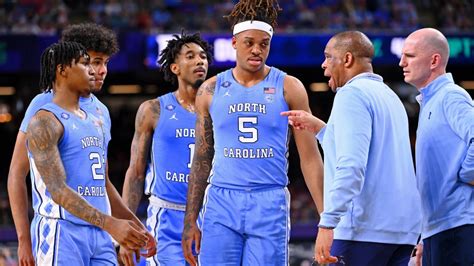NCAA Women’s Basketball refers to the competitive basketball played by women’s teams representing colleges and universities that are members of the National Collegiate Athletic Association (NCAA). It operates under strict eligibility and playing rules and regulations, with teams competing in conferences and vying for the ultimate prize, the annual NCAA Women’s Basketball Championship.
The NCAA Women’s Basketball tournament is one of the most prestigious and highly anticipated events in the sport, capturing the attention of fans and generating excitement throughout the nation. The tournament showcases the exceptional athleticism, skill, and determination of female student-athletes, providing a platform for them to excel and inspire.
The growth and popularity of NCAA Women’s Basketball have been remarkable, with increased media coverage, attendance, and fan engagement. It has played a pivotal role in promoting gender equality in sports, empowering young women to pursue their athletic aspirations and showcasing the incredible talent and achievements of female athletes.
NCAA Women’s Basketball
NCAA Women’s Basketball encompasses various key aspects that contribute to its significance and popularity. These include:
- Competition: Fierce and intense matches between highly skilled teams.
- Student-athletes: Balancing academic and athletic pursuits, showcasing exceptional abilities.
- Teamwork: Collaboration and unity among players towards a common goal.
- Strategy: Meticulous planning and execution of game strategies by coaches and players.
- Excitement: Fast-paced, high-scoring games that captivate audiences.
- Inclusion: Providing opportunities for women to excel in basketball at the collegiate level.
- Inspiration: Empowering young girls to pursue their athletic dreams.
- Tradition: A rich history and legacy of women’s basketball within the NCAA.
- Entertainment: A thrilling and engaging spectacle for fans of all ages.
These aspects are interconnected and contribute to the overall appeal of NCAA Women’s Basketball. The competition showcases the extraordinary talent and dedication of student-athletes, while the teamwork and strategy highlight the mental and physical demands of the sport. The excitement, inclusion, and inspiration it generates make it a powerful force in promoting gender equality and empowering women in sports.
Competition
In the realm of NCAA Women’s Basketball, competition takes center stage, igniting fierce and intense battles between highly skilled teams. This competitive spirit is a defining characteristic of the sport, pushing players to their limits and captivating audiences with its thrilling matches.
- Athleticism and Skill: Players in NCAA Women’s Basketball possess exceptional athleticism, showcasing remarkable speed, agility, and ball-handling abilities. Their honed skills, developed through countless hours of training and practice, allow them to execute complex plays and perform gravity-defying shots.
- Strategic Play: Beyond individual talent, teams in NCAA Women’s Basketball emphasize strategic gameplay. Coaches devise intricate offensive and defensive tactics, utilizing different formations and set plays to outsmart their opponents. Players must possess a deep understanding of the game and execute these strategies flawlessly.
- Teamwork and Unity: Competition in NCAA Women’s Basketball is not solely about individual glory; it is about the collective effort of the team. Players rely on each other for support, encouragement, and execution. Strong bonds and camaraderie are forged on and off the court, contributing to the team’s success.
- Unpredictability and Excitement: The competitive nature of NCAA Women’s Basketball ensures that every match is unpredictable and filled with excitement. Underdogs often rise to the occasion, challenging the dominance of top-ranked teams. Close games and nail-biting finishes are common, keeping fans on the edge of their seats.
The fierce competition in NCAA Women’s Basketball not only provides a platform for athletic excellence but also fosters a sense of camaraderie, sportsmanship, and resilience among the players. It is a testament to the dedication, skill, and passion that these athletes bring to the game, making NCAA Women’s Basketball a captivating and inspiring spectacle.
Student-athletes
In the realm of NCAA Women’s Basketball, student-athletes stand as paragons of dedication and excellence, skillfully navigating the demanding landscape of academic and athletic pursuits. Their exceptional abilities extend beyond the basketball court, encompassing the pursuit of higher education and personal growth.
Balancing academics and athletics requires an unwavering commitment and an ability to manage time effectively. Student-athletes meticulously plan their schedules, prioritizing classes, study sessions, practices, and games. They develop strong time-management skills, learning to maximize their productivity and efficiency.
The rigors of NCAA Women’s Basketball demand a high level of physical fitness and mental toughness. Student-athletes undergo intense training regimens, pushing their bodies to the limits while maintaining peak performance. They cultivate a strong work ethic and an ability to overcome adversity, both on and off the court.
Beyond their athletic achievements, student-athletes in NCAA Women’s Basketball serve as role models for young girls and aspiring athletes. They demonstrate the power of perseverance, resilience, and the pursuit of excellence in all endeavors. Their success stories inspire future generations to embrace challenges and strive for greatness.
The connection between student-athletes and NCAA Women’s Basketball is profound. Student-athletes are the heart and soul of the sport, embodying its values of teamwork, determination, and the pursuit of excellence. Their dedication to academics and athletics showcases the transformative power of sport in shaping well-rounded individuals.
Teamwork
Within the dynamic and competitive world of NCAA Women’s Basketball, teamwork emerges as a cornerstone, a force that unites players in the pursuit of a shared objective. It is not merely a concept; it is the lifeblood that fuels success on the court.
Teamwork in NCAA Women’s Basketball manifests in various forms. Players must possess a deep understanding of their roles and responsibilities within the team’s overall strategy. They must communicate effectively, anticipating the movements and intentions of their teammates. Trust and mutual respect are essential, enabling players to rely on each other in critical moments.
The significance of teamwork cannot be overstated. It allows teams to execute complex plays with precision, maximizing their efficiency and effectiveness. It fosters a sense of camaraderie and shared purpose, motivating players to push beyond their individual limits. Moreover, teamwork promotes inclusivity, ensuring that every player feels valued and contributes to the team’s success.
Examples of exceptional teamwork in NCAA Women’s Basketball abound. The 2022 championship-winning Stanford Cardinal showcased an extraordinary level of collaboration and unity. Led by All-American Haley Jones, the team seamlessly executed Coach Tara VanDerveer’s game plan, adapting to their opponents’ strategies with remarkable fluidity.
In conclusion, teamwork in NCAA Women’s Basketball is not simply a buzzword; it is a fundamental principle that underpins the sport’s success and appeal. It requires dedication, communication, trust, and a shared commitment to excellence. By embracing teamwork, players elevate their individual abilities and forge an unbreakable bond that propels them towards collective triumph.
Strategy
In the competitive landscape of NCAA Women’s Basketball, strategy reigns supreme, serving as the architect of success on the court. Coaches and players meticulously craft and execute game plans, navigating the intricacies of the sport to gain an edge over their opponents.
- Scouting and Preparation: Coaches in NCAA Women’s Basketball prioritize scouting and preparation, studying opponents’ tendencies, strengths, and weaknesses. They analyze game film, identify patterns, and tailor their strategies accordingly. Players, in turn, absorb and execute these game plans, making adjustments as the game progresses.
- Offensive and Defensive Schemes: Strategy in NCAA Women’s Basketball encompasses both offensive and defensive schemes. Coaches design plays to maximize scoring opportunities and create mismatches, capitalizing on players’ strengths. Defensively, they implement strategies to disrupt opponents’ rhythm, force turnovers, and limit scoring.
- Player Roles and Responsibilities: Effective strategy requires clearly defined player roles and responsibilities. Coaches assign specific roles to each player based on their skills and abilities. Players must understand their roles and execute them seamlessly within the team’s overall strategy.
- Adaptability and Adjustments: The fast-paced nature of NCAA Women’s Basketball demands adaptability and quick decision-making. Coaches and players must be prepared to adjust their strategies on the fly, responding to unforeseen circumstances and opponents’ tactics. The ability to make real-time adjustments is crucial for success.
In conclusion, strategy plays an indispensable role in NCAA Women’s Basketball, influencing every aspect of the game. Through meticulous planning and execution, coaches and players strive to outsmart their opponents, maximize their potential, and achieve victory. The strategic complexities of the sport add depth and excitement to the game, showcasing the intellectual and tactical prowess of those involved.
Excitement
In the dynamic world of NCAA Women’s Basketball, excitement reigns supreme, captivating audiences with its fast-paced, high-scoring games. This exhilarating brand of basketball showcases the extraordinary athleticism, skill, and determination of female student-athletes, leaving fans on the edge of their seats from tip-off to the final buzzer.
- Unpredictable Outcomes: NCAA Women’s Basketball is renowned for its unpredictable nature, where underdogs can rise to the occasion and challenge the dominance of top-ranked teams. The parity among teams and the intense competition create a thrilling atmosphere, keeping fans engaged and invested in every game.
- Exceptional Athleticism: The players in NCAA Women’s Basketball are exceptional athletes, showcasing remarkable speed, agility, and ball-handling abilities. Their gravity-defying shots, quick crossovers, and powerful drives add an element of excitement and unpredictability to the game.
- High-Scoring Affairs: NCAA Women’s Basketball is characterized by high-scoring games, providing a non-stop offensive spectacle for fans. Teams execute complex plays, utilize pinpoint passing, and capitalize on fast-break opportunities, resulting in a continuous flow of points and electrifying moments.
- Crowd Engagement: The excitement on the court translates into an electric atmosphere in the stands. Fans of NCAA Women’s Basketball are passionate and engaged, cheering on their teams with unwavering support. The energy and enthusiasm of the crowd further elevate the excitement and create a truly immersive experience.
In conclusion, the excitement generated by NCAA Women’s Basketball is a potent combination of fast-paced gameplay, high-scoring affairs, unpredictable outcomes, exceptional athleticism, and passionate fans. These elements converge to create a captivating spectacle that leaves audiences enthralled and yearning for more.
Inclusion
The connection between inclusion and NCAA Women’s Basketball is inextricably intertwined, as the NCAA provides a platform for women to showcase their skills, pursue higher education, and achieve their full potential in the sport. Inclusion in NCAA Women’s Basketball goes beyond mere participation; it encompasses creating a welcoming and equitable environment where female athletes can thrive.
Historically, women have faced barriers and limited opportunities in sports, including basketball. The NCAA’s commitment to inclusion has played a pivotal role in breaking down these barriers and leveling the playing field. By providing scholarships, equitable resources, and a supportive infrastructure, the NCAA empowers women to pursue their passion for basketball while balancing their academic commitments.
The positive impact of inclusion in NCAA Women’s Basketball extends beyond the court. It fosters a sense of empowerment and self-confidence among female athletes, encouraging them to dream big and strive for excellence. Moreover, it serves as a beacon of inspiration for younger girls, demonstrating that women can achieve great things in sports and beyond.
In conclusion, inclusion is a cornerstone of NCAA Women’s Basketball, enabling women to excel in the sport, pursue their educational goals, and inspire future generations. The NCAA’s commitment to creating an inclusive environment is essential for the growth and success of women’s basketball and empowers female athletes to reach their full potential.
Inspiration
NCAA Women’s Basketball serves as a beacon of inspiration for young girls, demonstrating the power of perseverance, resilience, and the pursuit of excellence. It empowers them to dream big and embrace their athletic potential.
- Role models and mentorship: Young girls find relatable role models in NCAA Women’s Basketball players, who showcase the possibilities and break down stereotypes. These players become mentors, inspiring young athletes and encouraging them to believe in themselves.
- Visibility and representation: NCAA Women’s Basketball provides visibility for female athletes, showcasing their skills and achievements on a national stage. This visibility inspires young girls to see themselves in the sport and motivates them to pursue their own athletic dreams.
- Community and support: NCAA Women’s Basketball fosters a sense of community and support for young girls interested in basketball. Through camps, clinics, and outreach programs, the NCAA provides opportunities for girls to learn from experienced players and coaches, building their confidence and skills.
- Challenging stereotypes: NCAA Women’s Basketball challenges traditional stereotypes about female athletes. By showcasing women competing at the highest level, it breaks down preconceived notions and encourages young girls to defy societal expectations and pursue their athletic aspirations.
In conclusion, NCAA Women’s Basketball plays a vital role in inspiring young girls to pursue their athletic dreams. By providing role models, increasing visibility, fostering community, and challenging stereotypes, it empowers girls to embrace their potential, strive for greatness, and make a positive impact in the world of sports.
Tradition
The tradition of women’s basketball within the NCAA is deeply entwined with the history and development of the sport itself. It encompasses the legacy of pioneering players, coaches, and teams that have shaped the game and continue to inspire generations of athletes.
- Origins and Evolution
Women’s basketball has a rich history within the NCAA, dating back to the early 20th century. The game was first introduced as a varsity sport at the University of California, Berkeley in 1915 and quickly spread to other colleges and universities across the nation.
- Title IX and Growth
The passage of Title IX in 1972 marked a significant turning point for women’s basketball. The legislation mandated equal opportunities for female athletes, leading to increased funding, coaching support, and media coverage for women’s sports, including basketball.
- Legendary Players and Coaches
The tradition of women’s basketball within the NCAA is also defined by its legendary players and coaches. Players like Ann Meyers, Cheryl Miller, and Candace Parker have left an indelible mark on the sport with their exceptional skills and accomplishments. Similarly, coaches like Pat Summitt, Geno Auriemma, and Tara VanDerveer have built powerhouse programs and mentored countless student-athletes.
- Impact on Society
The tradition of women’s basketball within the NCAA has had a profound impact on society. It has challenged gender stereotypes, empowered young girls to pursue their athletic dreams, and promoted the values of teamwork, perseverance, and sportsmanship.
In conclusion, the tradition of women’s basketball within the NCAA is a testament to the growth and success of the sport. It embodies the legacy of exceptional athletes, coaches, and teams that have paved the way for future generations. The tradition continues to inspire, empower, and shape the landscape of women’s basketball, both within the NCAA and beyond.
Entertainment
The connection between entertainment and NCAA Women’s Basketball is undeniable. The sport offers a thrilling and engaging spectacle that captivates fans of all ages. Its fast-paced nature, high-scoring games, and exceptional athleticism combine to create an exhilarating experience.
Entertainment is a crucial component of NCAA Women’s Basketball as it enhances its popularity and appeal. The excitement generated by close games, buzzer-beaters, and spectacular plays attracts large audiences and keeps them engaged throughout the game. Fans are drawn to the unpredictable nature of the sport, where underdogs can often challenge top-ranked teams.
Moreover, the entertainment value of NCAA Women’s Basketball extends beyond the court. The passionate fan base, enthusiastic crowds, and vibrant atmosphere contribute to the overall entertainment experience. Fans connect with their favorite teams and players, forming a sense of community and shared passion. This connection enhances the entertainment value and makes the sport more enjoyable for spectators.
The entertainment aspect of NCAA Women’s Basketball also plays a significant role in promoting the sport and attracting new fans. The thrilling games and captivating storylines generate media attention and increase the visibility of women’s basketball. This exposure helps attract young athletes to the sport and inspires future generations of players.
In conclusion, the entertainment value of NCAA Women’s Basketball is a vital component of its success and popularity. The fast-paced games, exceptional athleticism, and passionate fan base create a thrilling and engaging spectacle that captivates audiences. This entertainment aspect not only enhances the enjoyment of the sport but also promotes its growth and inspires future generations of players.
Frequently Asked Questions about NCAA Women’s Basketball
This section addresses common queries and misconceptions surrounding NCAA Women’s Basketball, providing concise and informative answers.
Question 1: What are the key differences between NCAA Women’s Basketball and men’s basketball?
NCAA Women’s Basketball follows distinct rules and regulations compared to men’s basketball. These differences include variations in court dimensions, game duration, and the use of a smaller basketball.
Question 2: How competitive is NCAA Women’s Basketball?
NCAA Women’s Basketball is highly competitive, featuring skilled athletes and intense rivalries. The NCAA Women’s Basketball Tournament showcases the culmination of the season, where top teams vie for the national championship.
Question 3: What are the eligibility requirements for NCAA Women’s Basketball?
Student-athletes must meet NCAA eligibility standards, including academic qualifications, amateur status, and compliance with NCAA rules. These requirements ensure a fair and equitable playing field.
Question 4: How can I watch NCAA Women’s Basketball games?
NCAA Women’s Basketball games are televised on various networks and streaming platforms. Fans can also attend games in person at university arenas and tournament venues.
Question 5: What are the career opportunities for NCAA Women’s Basketball players?
NCAA Women’s Basketball provides a pathway to professional basketball careers in leagues worldwide. Additionally, players may pursue coaching, broadcasting, or other related fields.
Question 6: How can I get involved in NCAA Women’s Basketball?
Individuals interested in NCAA Women’s Basketball can engage in various ways, such as attending games, supporting local teams, or participating in youth basketball programs.
These frequently asked questions offer a glimpse into the NCAA Women’s Basketball landscape, highlighting its unique characteristics, competitive nature, eligibility requirements, viewing options, career opportunities, and community involvement.
For further information and updates on NCAA Women’s Basketball, visit the official NCAA website or follow reputable news sources covering the sport.
NCAA Women’s Basketball Tips
To enhance your knowledge and appreciation of NCAA Women’s Basketball, consider the following informative tips:
Tip 1: Understand the Rules and Regulations
Familiarize yourself with the unique rules and regulations governing NCAA Women’s Basketball, including court dimensions, game duration, and specific fouls. This understanding deepens your comprehension of the sport and allows you to follow the action more effectively.
Tip 2: Study Team and Player Statistics
Delve into team and player statistics to gain insights into their strengths, weaknesses, and performance trends. This knowledge enables you to make informed predictions and appreciate the nuances of the game.
Tip 3: Attend Live Games
Witnessing NCAA Women’s Basketball live provides an immersive experience unmatched by televised broadcasts. The atmosphere, crowd energy, and intensity of the game offer a unique perspective and enhance your appreciation for the sport.
Tip 4: Follow Reputable News Sources
Stay informed about NCAA Women’s Basketball by following reputable news sources, both online and in print. These sources provide up-to-date news, analysis, and insights that enrich your understanding of the sport.
Tip 5: Engage with the Community
Connect with other NCAA Women’s Basketball enthusiasts through online forums, social media groups, or local fan clubs. Sharing knowledge, discussing strategies, and engaging in friendly debates foster a sense of community and deepen your involvement in the sport.
Tip 6: Support Local Teams
Support NCAA Women’s Basketball at the local level by attending games, cheering for your university team, or volunteering with youth basketball programs. Your presence and encouragement contribute to the growth and visibility of the sport within your community.
Tip 7: Explore Historical Highlights
Delve into the rich history of NCAA Women’s Basketball by exploring historical highlights, legendary players, and iconic moments. This knowledge provides context and a deeper appreciation for the evolution and traditions of the sport.
Summary
By incorporating these tips into your NCAA Women’s Basketball experience, you will elevate your understanding of the game, gain a deeper appreciation for its intricacies, and become a more informed and engaged fan.
Conclusion
NCAA Women’s Basketball has emerged as a captivating sport that showcases the athleticism, skill, and determination of female student-athletes. Its competitive nature, strategic gameplay, and commitment to inclusion have made it a beloved and respected sport nationally.
As we look towards the future of NCAA Women’s Basketball, it is evident that the sport will continue to thrive and inspire generations to come. With its unwavering commitment to gender equality, empowerment, and athletic excellence, NCAA Women’s Basketball serves as a beacon of progress and a testament to the indomitable spirit of female athletes.





